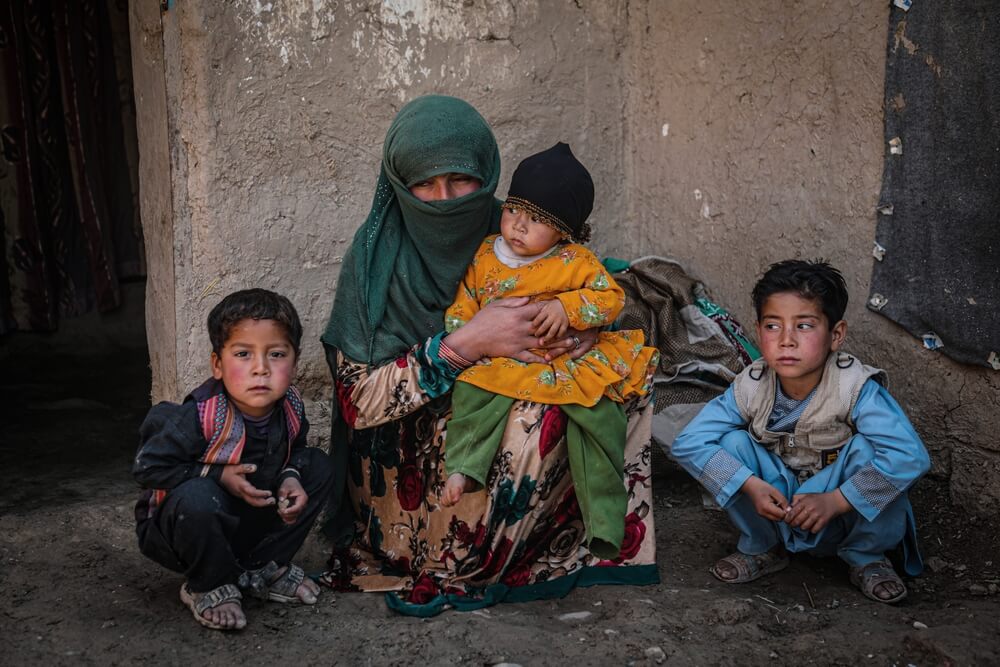For the Taliban regime in Afghanistan, the military parade at the Bagram base was a kind of mockery of America and its allies on the occasion of the third anniversary of their takeover of the country.
The parade of Taliban fighters with battered Soviet and American weapons was in reality a manifestation of the alienation of a militant and repressive regime from its own population, for which there is no escape from extreme misery even after three years.
After three years in power in Afghanistan, the Taliban regime believes that it is not ostracised by the world but that it has "very good relations with all countries of the world," as Taliban spokesman Zabihullah Mujahid claims.
He sees the recent UN-led meeting with the Taliban in Doha as proof that Afghanistan "has come out of global isolation."
But neither this meeting nor the previous three years have brought the Taliban regime a step closer to the world, nor the world to Afghanistan, and the isolation is almost as strong as it was on the first day.
No country in the world recognises the Taliban regime, although some countries, such as Russia and China, maintain a certain level of diplomatic relations.
A vicious circle of unhappiness
The ultra-conservative Taliban rule and its brutal laws have trapped the country in a vicious circle of unhappiness.
To mark three years of Taliban rule, a group of international humanitarian organisations has published shocking data on the difficult humanitarian situation in Afghanistan today.
Nearly 24 million people, or more than half of the population, are in need of humanitarian assistance; more than 6 million people are still internally displaced throughout the country; and about 14 million people face high levels of food insecurity.
Half of those in need of humanitarian assistance are children
Half of those in need of humanitarian assistance are children, and a quarter are women, according to international humanitarian organisations including CARE International, the Danish Refugee Council, the International Rescue Committee (IRC), the Norwegian Refugee Council, People in Need, and Save the Children International.
These were not important issues for the Taliban leaders as they celebrated the three-year anniversary of their takeover in front of around 10,000 men at the Bagram base, not far from Kabul.
"No one will be allowed to interfere in internal affairs," said Deputy Prime Minister Maulvi Abdul Kabir.
Donors are not returning
But without active international humanitarian aid, the people of Afghanistan cannot find a way out of hopelessness. The funds have dried up, and this year they only cover 20–25% of the population's humanitarian needs.
Donors will not stop hesitating to cooperate with the government, which has suspended all social institutions and is particularly repressive towards women, who in many places still lack access to secondary and higher education and employment.
"The Taliban’s rule makes codifying gender apartheid in international law particularly urgent" - UN Experts
"The Taliban’s rule makes codifying gender apartheid in international law particularly urgent, as it would allow the international community to better identify and address the regime’s attacks on Afghan women and girls for what they are," stated UN experts at the beginning of the year.
The Taliban regime is certainly not particularly concerned by these and similar international warnings, but it ties its functioning to selective economic openings, particularly towards China or Russia, and partly in its immediate neighbourhood.
A forgotten crisis
However, with all of them, and especially with the countries in the region, Afghanistan under the Taliban administration has an almost unsolvable problem because it offers refuge to militants who operate in a broader area, including China, Pakistan, Uzbekistan, and Tajikistan.
 Afghanistan is becoming a forgotten crisis after three years with the Taliban at the helm
Afghanistan is becoming a forgotten crisis after three years with the Taliban at the helm
As it spins in a vicious circle of problems that cannot be solved without reducing internal repression and opening up to the world, Afghanistan is becoming a forgotten crisis after three years with the Taliban at the helm.
There is no sign of resistance to the rigid rule that traps a population of over 40 million people. A similar apathy prevails in the international community.
"Nothing thus far suggests that the Taliban will soften their hard-line stances on gender and other issues anytime soon. Their intransigence will keep the regime mostly side-lined on the world stage, even if some regional actors tiptoe toward a form of recognition," said Graeme Smith from the International Crisis Group on the occasion of the three-year anniversary of the Taliban regime.